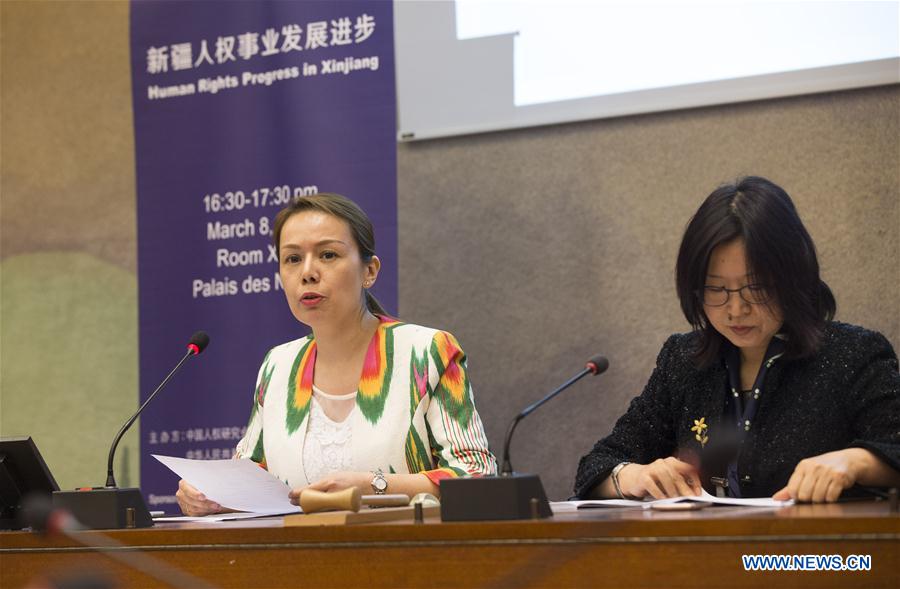
Zuliyati Simayi (L), a member of the China Society for Human Rights Studies and a professor at the School of Political Science and Public Administration of Xinjiang University, makes the remarks on the sidelines of the ongoing 40th session of the United Nations Human Rights Council in Geneva, Switzerland, March 8, 2019. Popularization of the national common language provides guarantee for the right to development for every ethnic group in northwest China's Xinjiang Uygur Autonomous Region, Zuliyati Simayi said here Friday. (Xinhua/Xu Jinquan)
GENEVA, March 8 (Xinhua) -- Popularization of the national common language provides guarantee for the right to development for every ethnic group in northwest China's Xinjiang Uygur Autonomous Region, a Chinese scholar said here Friday.
Zuliyati Simayi, a member of the China Society for Human Rights Studies and a professor at the School of Political Science and Public Administration of Xinjiang University, made the remarks on the sidelines of the ongoing 40th session of the United Nations Human Rights Council in Geneva.
Learning and using the national common language is a citizen right in China, she said at a meeting on the development and progress of human rights in Xinjiang, jointly sponsored by the Permanent Mission of China to the UN Office at Geneva and the China Society for Human Rights Studies.
"Promoting and popularizing the national common language is the need of the people of all ethnic groups in Xinjiang in their life, an important guarantee for them to achieve unity and equality, and an inevitable choice for the people of all ethnic groups there to seek common development and create a better future," she said.
While presenting her research results, Zuliyati noted that popularization of the national common language is an important means of helping the people of all ethnic groups in China out of poverty.
For the people of ethnic minorities in Xinjiang, she said, whatever their jobs, speaking national common language can bring more opportunities in their self-development.
At the same time, popularization of the national common language can facilitate the inflow of capital, personnel, technology and other factors of production, as well as the exchange of economic and trade information, in promoting the local development, she said.
"It is indispensable for minorities to learn the national common language well and obtain more knowledge of modern science and culture so as to better integrate into the modernization process," she added.
The scholar noted that popularizing the national common language does not challenge the protection of ethnic languages but help them coexist in a harmony.
Zuliyati said the Chinese government has been promoting the use of national common language while making efforts to ensure that all ethnic groups are free to use and develop their own languages.















